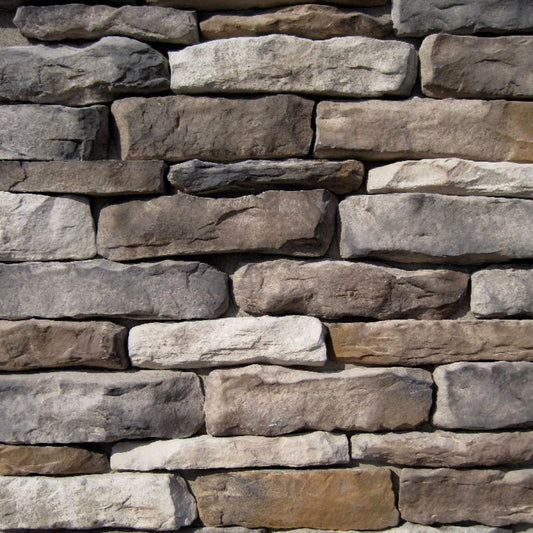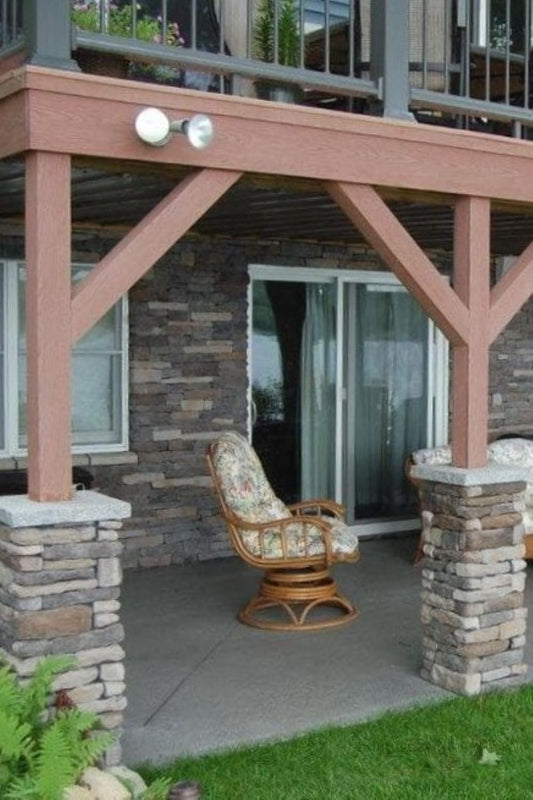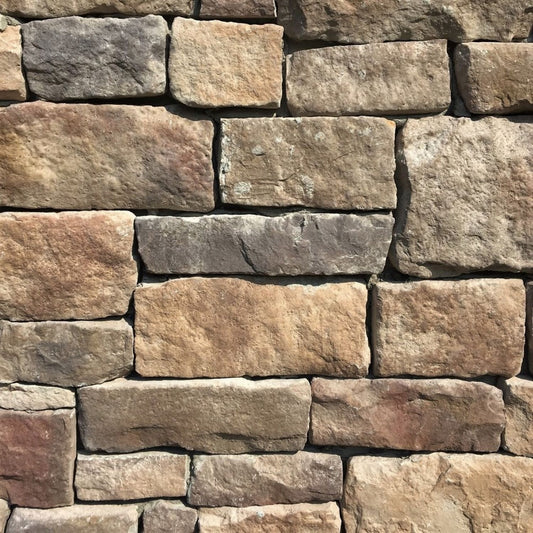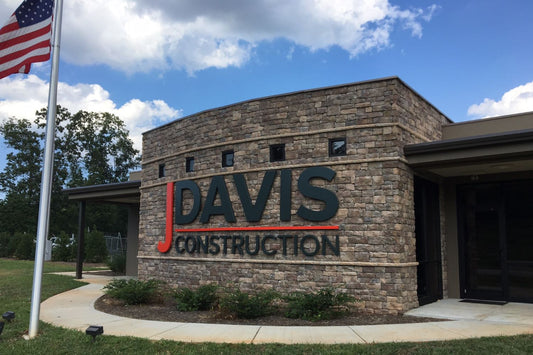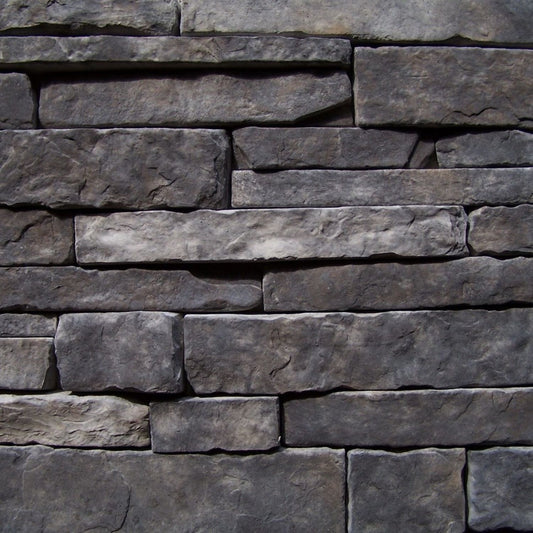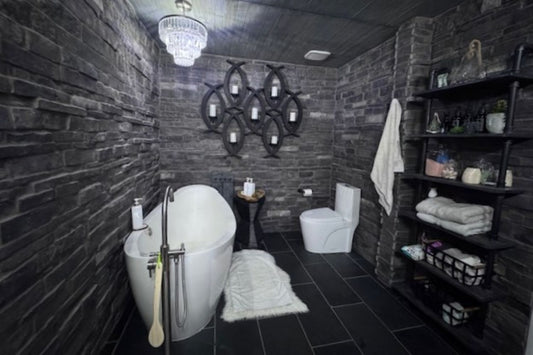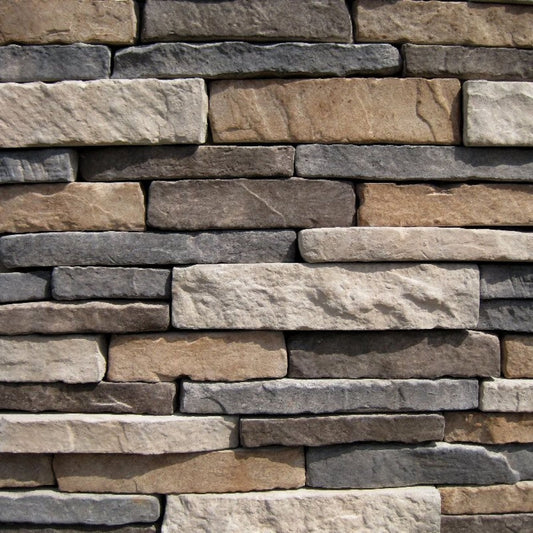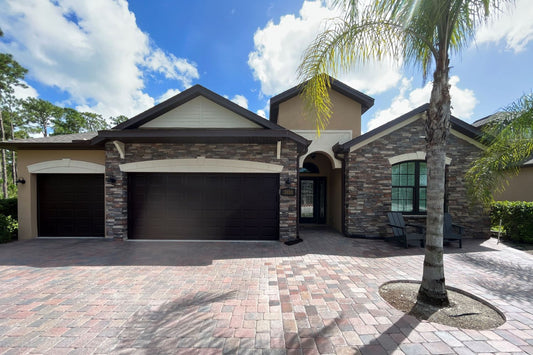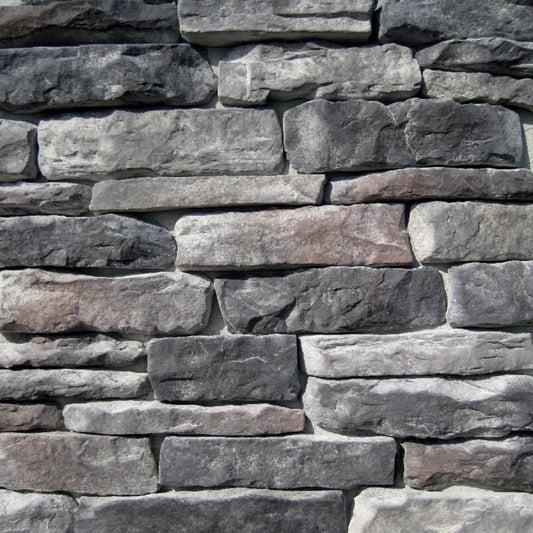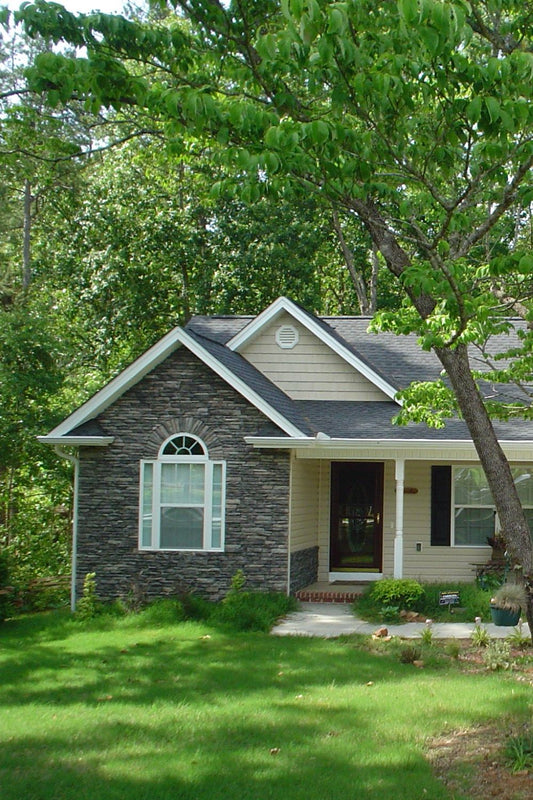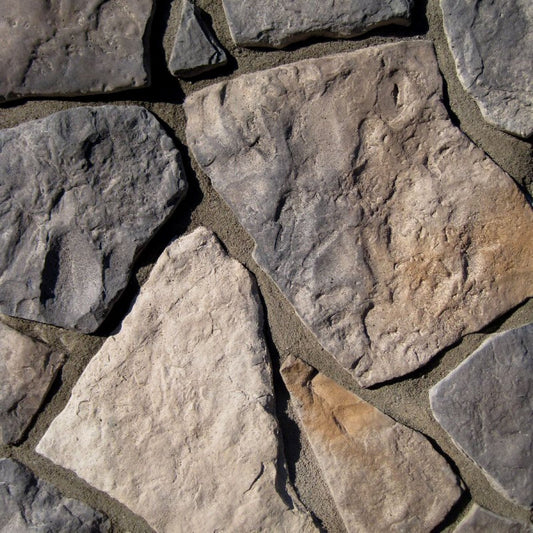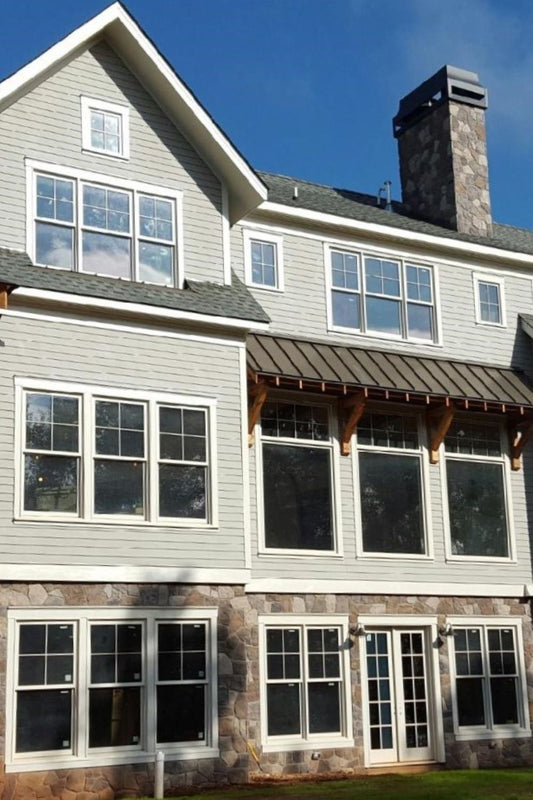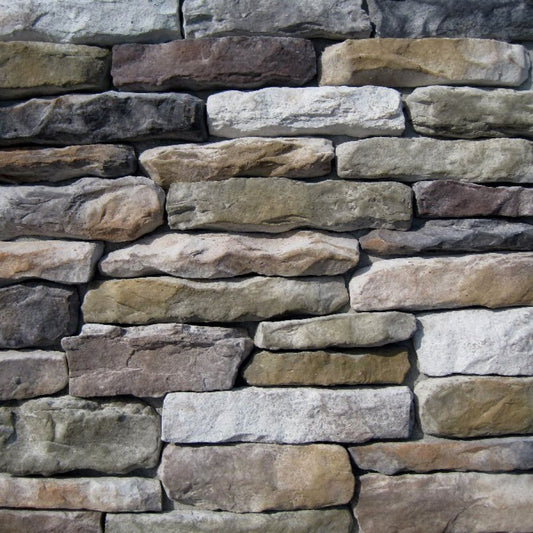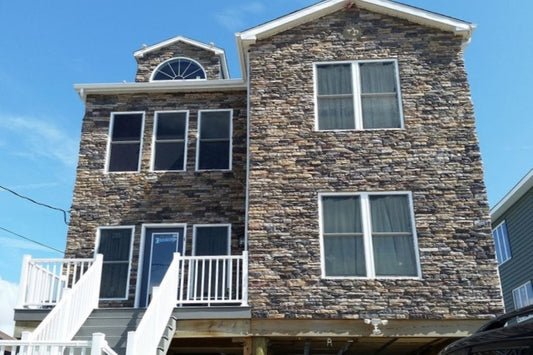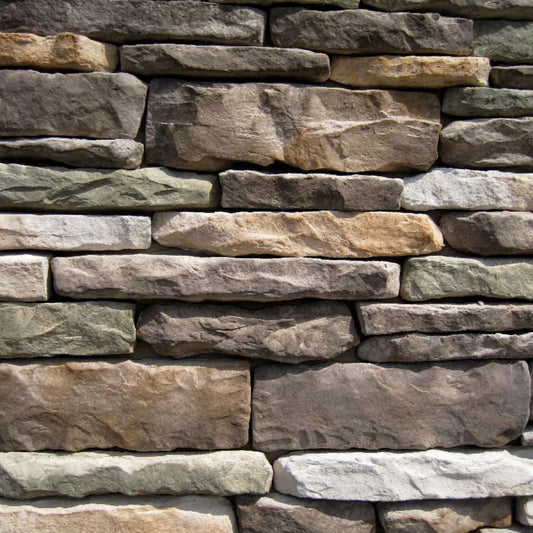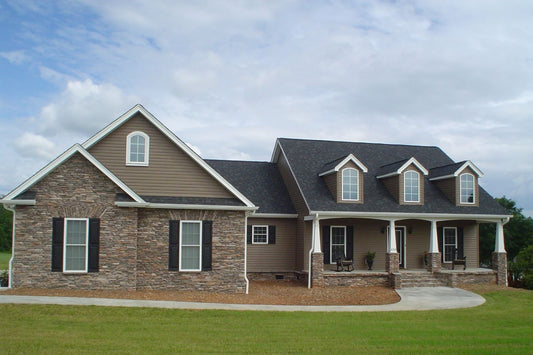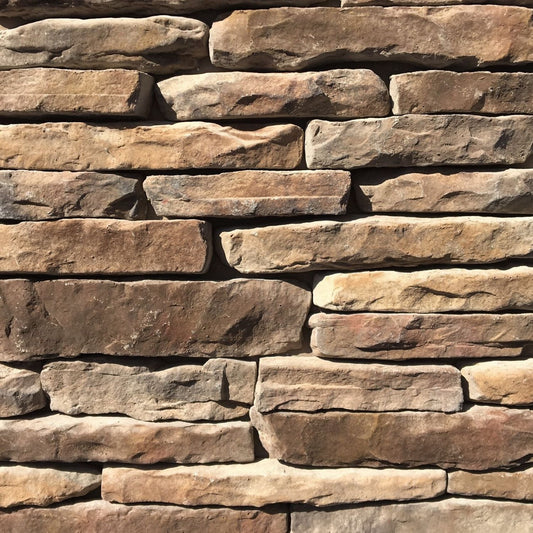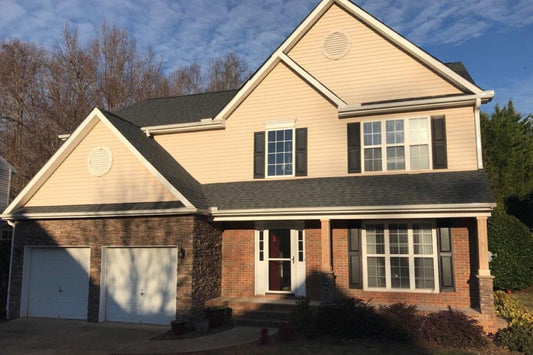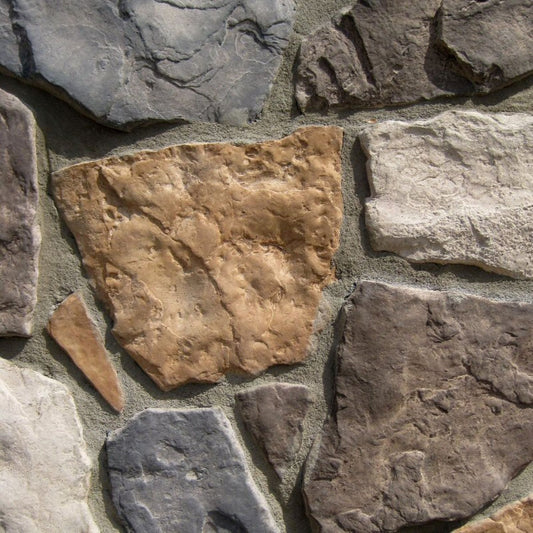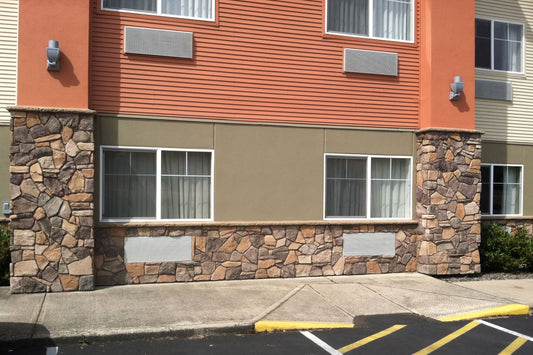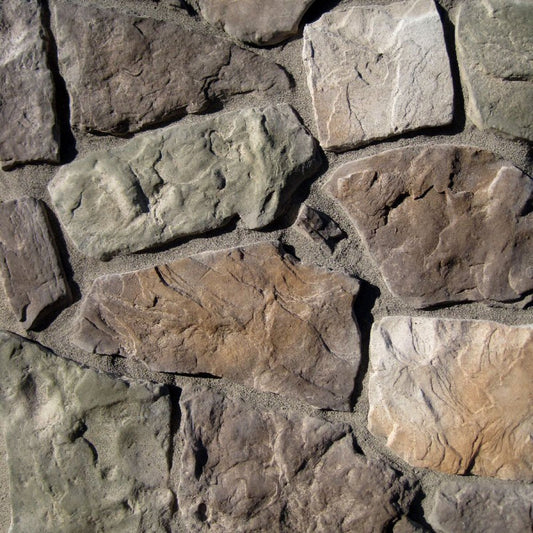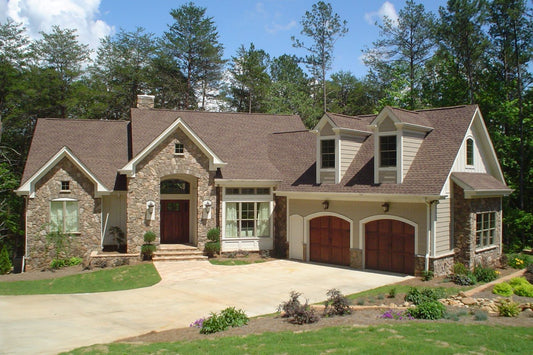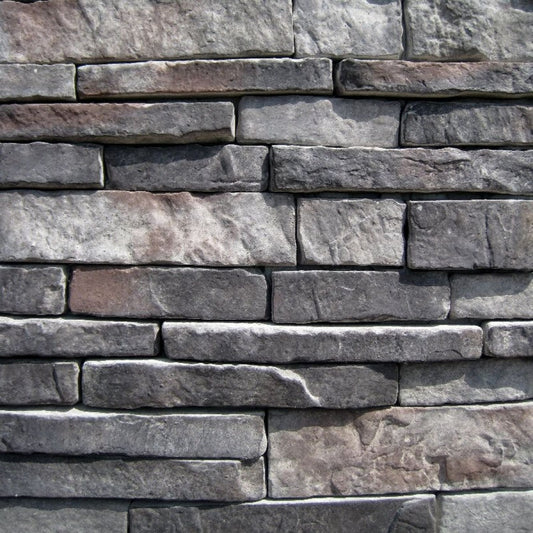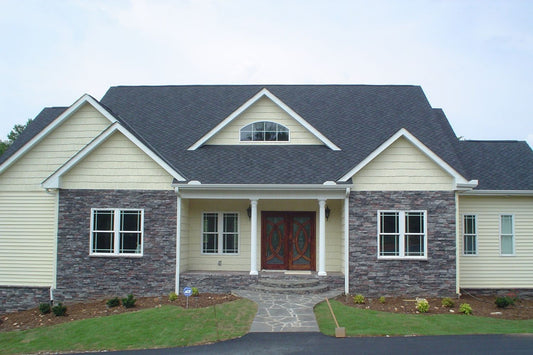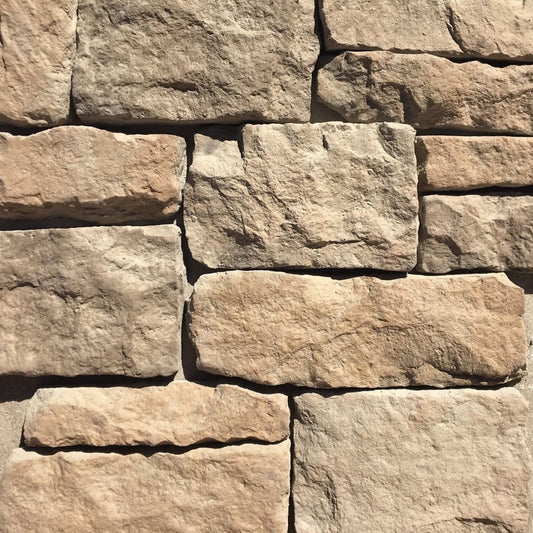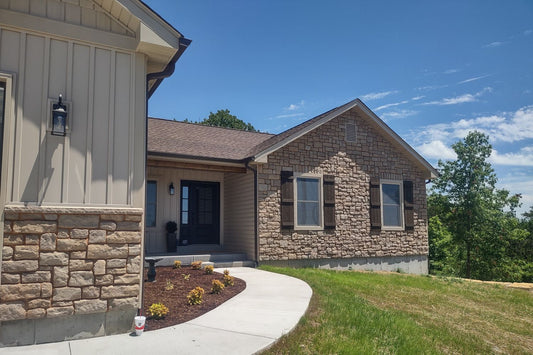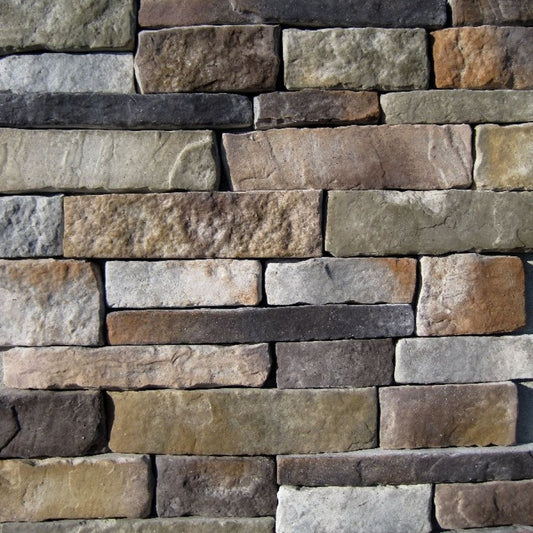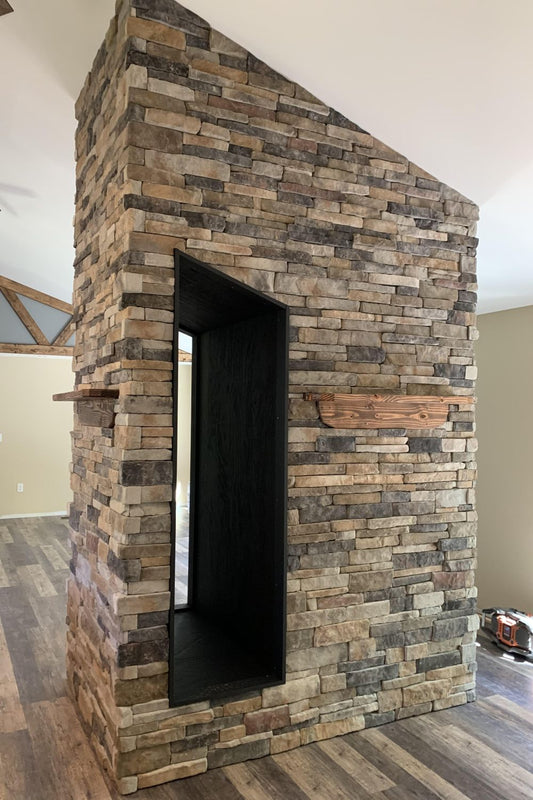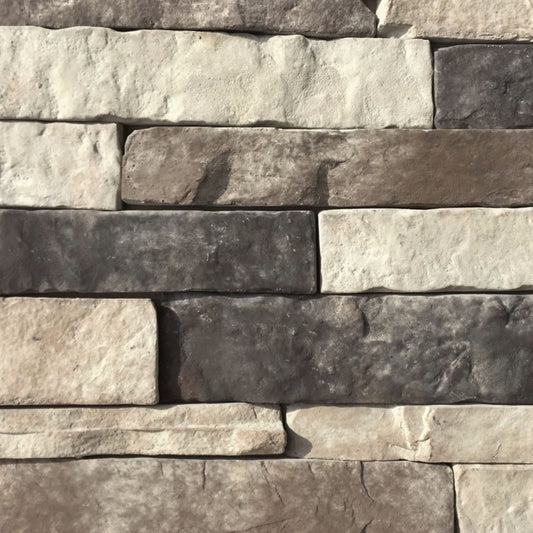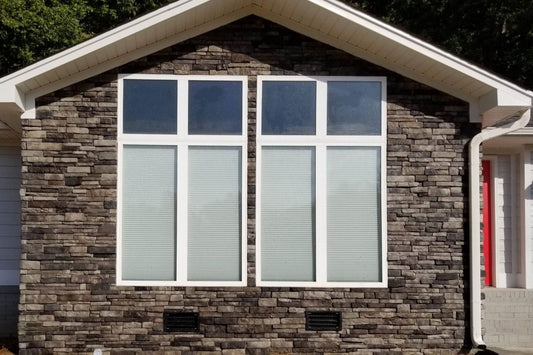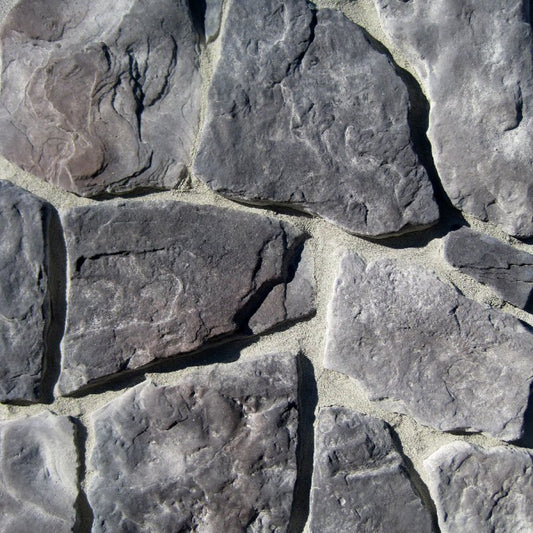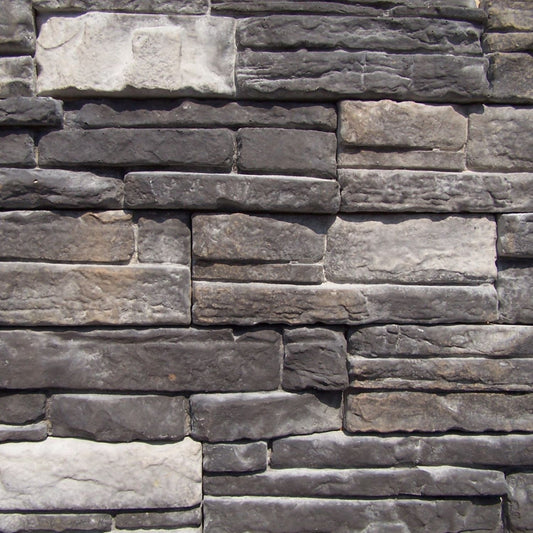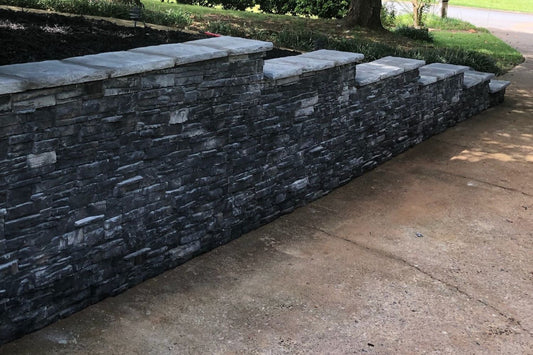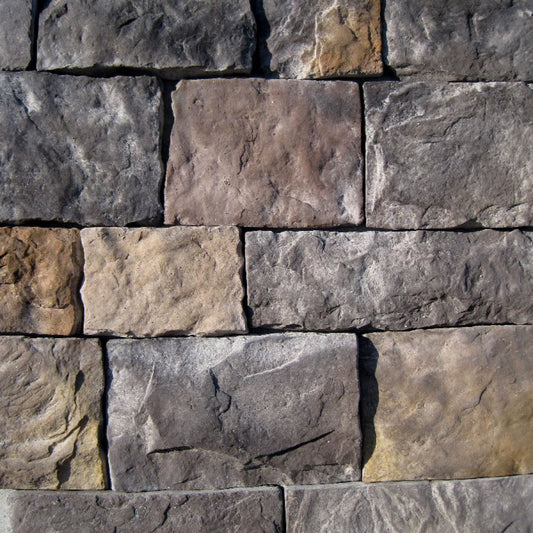
The Difference Between Stone Veneer and Faux Stone
Share
The use of stone accents has long been revered for its timeless appeal and rustic charm. However, with advancements in technology and materials, homeowners now have a multitude of options beyond natural stone. Two popular alternatives that often spark confusion are manufactured stone veneer and faux stone. While they may seem interchangeable at first glance, there are distinct differences between the two. Delve into the nuances of manufactured stone veneer and faux stone to unravel their unique characteristics and applications.
Originally posted March 18, 2024, updated February 4, 2026.
Manufactured stone veneer
Stone veneer, or manufactured stone veneer, also known as artificial or cultured stone, is crafted to replicate the appearance and texture of natural stone using a blend of cement, aggregates, and pigments. The manufacturing process involves casting molds from real stone to capture its intricate details and nuances. This results in a lightweight, versatile material that closely mimics the aesthetics of authentic stone without the hefty price tag. Key features of stone veneer:
1. Authentic appearance: stone veneer boasts a remarkably realistic appearance, featuring variations in color, texture, and shape that closely resemble natural stone.
2. Lightweight and flexible: unlike traditional stone, manufactured stone veneer is significantly lighter in weight, making it easier to handle and install. Its flexibility allows for greater adaptability to curved surfaces and irregular shapes.
3. Cost-effective: stone veneer offers a cost-effective alternative to natural stone, providing the same aesthetic appeal at a fraction of the cost. This makes it an attractive option for budget-conscious homeowners seeking to enhance their spaces without breaking the bank.
Faux stone panels
Faux stone, also referred to as synthetic or imitation stone, encompasses a broader category of decorative materials designed to simulate the look of stone. Unlike manufactured stone veneer, which replicates the appearance of specific natural stone types, faux stone encompasses a diverse range of materials, including polyurethane foam, fiberglass, and high-density polyethylene. Key features of faux stone:
1. Diverse material options: faux stone can be crafted from various materials, each offering unique benefits such as lightweight properties, durability, and ease of installation. Common types include polyurethane foam panels, fiberglass-reinforced polymer (FRP) panels, and high-density polyethylene (HDPE) panels.
2. Lightweight and low maintenance: faux stone is renowned for its lightweight nature and low maintenance requirements.
3. Ease of installation: faux stone is commonly made into panels for ease of installation and versatility in design.
Drawbacks of faux stone
1. Limited authenticity: despite advancements in manufacturing techniques, faux stone panels may not always perfectly replicate the appearance and texture of natural stone. Some variations may appear artificial upon close inspection, lacking the depth and authenticity of genuine stone.
2. Susceptibility to damage: while faux stone panels are durable, they are not as resilient as natural stone or stone veneer. They may chip, crack, or dent more easily, particularly in high-traffic areas or outdoor environments subject to impact or extreme weather conditions.
3. Color fading: over time, exposure to sunlight and environmental factors may cause the color of faux stone panels to fade or change. This can detract from the overall aesthetic and require additional maintenance or refinishing to restore their original appearance.
4. Limited customization: while faux stone panels offer a range of styles and textures, they may not provide the same level of customization as natural stone or stone veneer. Design options may be more limited, limiting the ability to achieve highly specific or unique looks.
5. Installation challenges: while faux stone panels are generally easier to install than natural stone or stone veneer, proper installation is still crucial to ensure a seamless and durable finish. Improper installation techniques or insufficient preparation of the substrate can lead to issues such as poor adhesion, uneven seams, or water infiltration.
6. Environmental concerns: some faux stone panels may contain synthetic materials or chemicals that could pose environmental risks during production, use, or disposal. Additionally, the manufacturing process of faux stone panels may have a higher carbon footprint compared to natural stone extraction and processing.
7. Long-term durability: while faux stone panels may be initially cost-effective, their long-term durability and longevity may not match that of natural stone or stone veneer. Over time, wear and tear, as well as exposure to the elements, may necessitate repairs or replacement, potentially offsetting any initial cost savings.
Frequently asked questions
1. What is the main difference between manufactured stone veneer and faux stone? The primary difference lies in materials and realism. Manufactured stone veneer is made from cement, aggregates, and pigments molded from real stone, resulting in a highly authentic look and feel. Faux stone is typically made from synthetic materials such as polyurethane or fiberglass and is designed to be lightweight and decorative, but it may lack the depth and texture of real stone.
2. Is manufactured stone veneer more realistic than faux stone? Yes. Manufactured stone veneer is generally considered more realistic because it is cast from actual stone molds and includes natural color variation and texture. Faux stone panels can look convincing from a distance, but up close they may appear artificial due to uniform patterns or surface finishes.
3. Which is better for outdoor use: stone veneer or faux stone? Manufactured stone veneer is typically better suited for outdoor applications. It offers greater durability, resistance to impact, and better performance in varying weather conditions. Faux stone panels may be used outdoors, but they are more susceptible to fading, cracking, and damage over time, especially in harsh climates.
4. Is faux stone cheaper than manufactured stone veneer? In many cases, faux stone panels can be more expensive than manufactured stone veneer, particularly higher-quality or specialty panel systems. While faux stone may reduce installation time, the material cost itself is often higher due to proprietary molds, finishes, and panelized designs. Manufactured stone veneer frequently offers a better balance of cost, authenticity, and long-term value, especially for larger projects or exterior applications.
5. Can manufactured stone veneer be installed by DIY homeowners? Yes, many homeowners successfully install manufactured stone veneer as a DIY project. While it requires more preparation than faux stone panels, it is lighter and easier to work with than natural stone and does not require traditional masonry skills when installed correctly.
6. Does faux stone require maintenance? Faux stone is generally low maintenance, but it is not maintenance-free. Over time, panels may fade from UV exposure or sustain damage that requires repair or replacement. Cleaning methods must also be compatible with the panel material to avoid surface damage.
7. Which option adds more value to a home? Manufactured stone veneer typically adds more perceived and resale value due to its realistic appearance and durability. Because it closely resembles natural stone, it is often viewed as a premium exterior or interior finish compared to faux stone panels.
The difference between stone veneer and faux stone
While both manufactured stone veneer and faux stone share the common goal of emulating the look of natural stone, they differ in composition, manufacturing processes, and applications. Manufactured stone veneer excels in replicating the authenticity of specific stone types, offering a cost-effective and visually appealing alternative to natural stone. On the other hand, faux stone panels provide an accessible and practical solution for achieving the look of natural stone without the expense associated with traditional masonry. By understanding the distinctions between these two options, homeowners can confidently select the ideal solution to enhance their spaces and achieve their desired aesthetic vision.
You may also like
Is manufactured stone veneer real stone? Key differences explained.
Stone veneer vs. faux stone panels: Key differences, costs, and durability compared.
Manufactured stone veneer or faux stone panels? Which is better?
What's next?
Enhance your design with our beautiful stone veneer! Shop now to explore our selection or order a sample to see and feel the quality for yourself!
Have a question?
Please see our full terms of service or check out our frequently asked questions.
For general information and questions please call: (864) 882-8960 Mon. - Fri. 8am - 5pm (EST) or email: info@mountainviewstone.net we are more than happy to help you.
Or you can submit your questions via our contact us page.
We look forward to working with you on your upcoming project.
The Mountain View Stone Team
Pictured is stack stone ozark.

